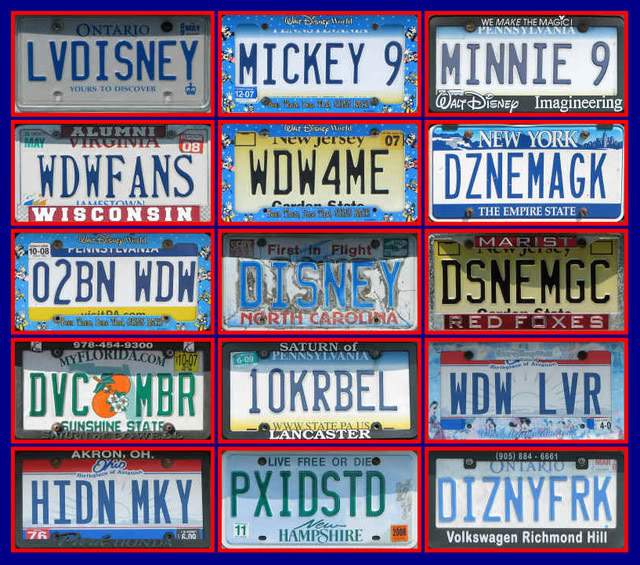Have you ever been behind a car with a humorous, quirky, or clever license plate, such as “DGSRULE,” “ROGER DAT,” “IM A CAR,” or “H8SKOOL?”
Chances are strong that at some point you’ve seen these personalized license plates on the road. After all, in 2015, the DMV earned $9.2 million from personalized plates alone.
If you’re interested in obtaining your own vanity license plates, here are six questions to ask your state’s DMV before applying for you own unique, customized license plates. There are plenty of design options for you to choose from. For instance, at swiftreg.co.uk, you’ll find a wide variety and numbers combined in all sorts.
- What types of vehicles are eligible?
In most states, owners of the following vehicles are eligible for personalized plates:
- Passenger vehicles including cars, SUVs, light trucks, buses, and motorhomes that you own
- Private buses that can carry more than 10 passengers
- Older vehicles that have a regular registration and are not registered as either Classic or Antique vehicles
- Private trailers, such as light utility and boat trailers
If you’re leasing the vehicle, you’re not permitted to apply for personalized plates. States such as Illinois will also not allow vehicles in a trust or those registered to a business to obtain custom license plates.
- What can I use for a personalized plate combination?
This varies from state to state, but in New York, the maximum number of characters (number, letter, or space) you’re allowed to have on a standard license plate is eight. For motorcycles and picture plates, it’s six.
Additionally, some states may ask you to provide an explanation behind the meaning of your personalized plate combination.
- Are there any restrictions?
There are definitely restrictions when it comes to personalized plates. Again, this is different across each state, but it’s safe to say that the following combinations are restricted:
- Combinations that have a sexual connotation
- Combinations that are obscene, insulting, vulgar, or derogatory
- Combinations that contain just one letter
- Combinations that make it appear as if you’re an officer or government official
- Slang words or phonetic spellings in combinations that are restricted
Although there are some instances of personalized plates getting around these restrictions, typically, the DMV will review the plate combination and deny your request if it contains any of the restrictions listed above.
Determine what’s permitted and what’s registered in your state before applying to obtain vanity license plates.
- Can special and picture plates be personalized?
In Florida, Illinois, and New York, special and picture plates such as Military and Veteran, Government, Counties, Collegiate, Sports, Disabled Person, Native American, Special Interest, Professions, and Historical Vehicle can be personalized.
- How do I apply for personalized license plates?
Before applying for a vanity license plate, make sure that it’s available. Most states allow you to see if the combination of letters and numbers you want to use on your license plate is available online. If available, you can apply for personalized license plates either in-person, by mail, or online.
Most states will require you to complete an application form, typically found online. If you’re only allowed to apply in person or by mail, you’ll need to print and fill out the application.
While the requirements are different in each state, make sure that you at least have your VIN, the last four digits of your SSN, and your driver’s license ready when applying. Don’t forget to have the payment as well, via a credit or debit card if done online or a check if done through the mail.
The cost of personalized plates varies. In North Carolina, it’s $30, while in New Jersey it costs $50 in addition to your standard registration fees.
- When do I have to renew my specialty plates?
This will also vary depending on the state in which you reside. However, many states require that license plate renewal occur annually, even if you have specialty plates.









